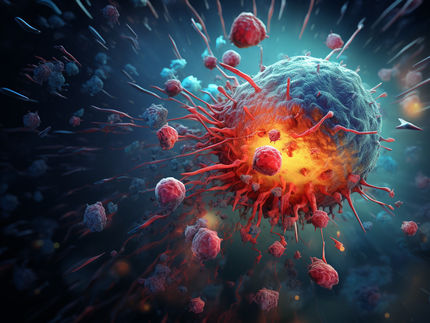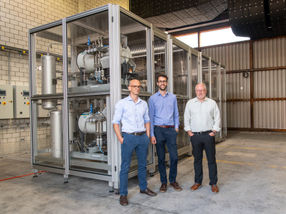New promising results published on Pharmexa's PADRE epitope in Alzheimer's vaccine
A group of scientists from the Institute of Molecular medicine at Huntington Beach (California) and the Institute of Brain Aging and dementia at the University of California has published new pre-clinical data on an experimental second generation Alzheimer's vaccine incorporating Pharmexa's proprietary PADRE® epitope. The results are published in the Journal of neuroscience.
The researchers have previously described promising results with a first generation vaccine using Pharmexa's PADRE® epitope. The new second generation vaccine, a combination of two copies of a particular fragment of the Abeta peptide and PADRE®, completely eliminated potentially harmful auto-reactive T-cell responses and induced antibody responses in a transgenic mouse model of Alzheimers disease. Equally important, a positive correlation between the concentration of antibodies generated and the reduction in Abeta plaques in the brain was observed. This reduction was not associated with adverse events, such as T-cell or macrophage infiltration in the brain.
These independent results once confirm the versatility of Pharmexa's PADRE® epitope across a broad range of applications. The data also confirm Pharmexa's hypotheses that a safe and effective Alzheimer's vaccine may be developed using dominant helper cell epitopes such as PADRE® that will alleviate the side effects observed with earlier Abeta vaccines.
The Abeta peptide is believed to have a central role in the onset and progression of Alzheimer's disease. Pharmexa, in collaboration with H. Lundbeck, as well as other pharmaceutical and biotech companies, has therefore been targeting the Abeta peptide for a therapeutic Alzheimer's vaccine.
Topics
Organizations
Other news from the department research and development

Get the life science industry in your inbox
By submitting this form you agree that LUMITOS AG will send you the newsletter(s) selected above by email. Your data will not be passed on to third parties. Your data will be stored and processed in accordance with our data protection regulations. LUMITOS may contact you by email for the purpose of advertising or market and opinion surveys. You can revoke your consent at any time without giving reasons to LUMITOS AG, Ernst-Augustin-Str. 2, 12489 Berlin, Germany or by e-mail at revoke@lumitos.com with effect for the future. In addition, each email contains a link to unsubscribe from the corresponding newsletter.
Most read news
More news from our other portals
See the theme worlds for related content
Topic world Antibodies
Antibodies are specialized molecules of our immune system that can specifically recognize and neutralize pathogens or foreign substances. Antibody research in biotech and pharma has recognized this natural defense potential and is working intensively to make it therapeutically useful. From monoclonal antibodies used against cancer or autoimmune diseases to antibody-drug conjugates that specifically transport drugs to disease cells - the possibilities are enormous

Topic world Antibodies
Antibodies are specialized molecules of our immune system that can specifically recognize and neutralize pathogens or foreign substances. Antibody research in biotech and pharma has recognized this natural defense potential and is working intensively to make it therapeutically useful. From monoclonal antibodies used against cancer or autoimmune diseases to antibody-drug conjugates that specifically transport drugs to disease cells - the possibilities are enormous
























































